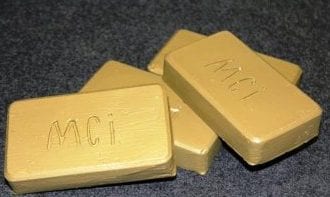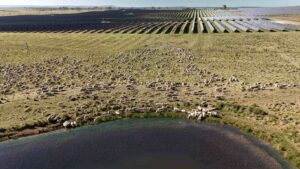An Australian venture including Orica and the University of Newcastle is developing ground breaking technology for what it says is a new solution to our carbon emissions woes.
A carbon dioxide (CO2) research pilot plant, the only plant in the world, will be established at the University of Newcastle (UoN) to develop a new technology converting carbon emissions into various forms of inert carbonate rock.
This rock can in turn be used to create bricks or pavers and could lead the way in green building materials in the construction industry.
The venture, a union between GreenMag Group, Orica Ltd and the UoN, has been named Mineral Carbonation International (MCi) and has completed six years of R&D.
MCi CEO Marcus St. John Dawe has stated that “the technology [has been proven] in the lab” and the company’s next goal is to “scale it to reduce the costs to be in line with a future carbon price”.
Orica, the NSW Government and Federal Government will jointly fund the project, spanning over four years. The total budget is set to be $9.12 million with approximately $3 million coming from each funding partner.
Essentially the captured carbon will react with chosen basic materials to form harmless solid carbonates, similar to baking soda. Through this process MCi is mimicking earth’s natural reaction to carbon where rock is weathered by rain but it could prove to be a viable solution to our carbon woes.
This new technology will effectively ‘close the loop’ on carbon emissions – preventing the gas from accumulating in the atmosphere. The project will be permanently transforming the carbon, as opposed to carbon geo-sequestration, which stores the gas underground.
MCi says the carbonation process could yield valuable by-products such as iron, nickel and chrome.
“The major difference between this and geosequestration is that we are permanently transforming CO2, not just storing it underground,” Dawe said.
“It’s ideal for New South Wales where there is an abundance of low grade mineral deposits that fit our environmental standards and don’t compete with farming land. The potential exists to create many new jobs in a cleaner energy industry.”
Although the process will prove an innovative solution to the carbon mitigation, the company will still need to source various minerals that are needed in the carbonate manufacturing process. This could mean that more mining will be required to source minerals needed in the process.
MCi has made it clear that costs are the chief aim in this pilot, especially after an 2005 IPCC report stated that a power plant with a carbon capture system (CCS) using mineral carbonation would require 60-180 per cent more power than the a power plant without a CCS.
The pilot plant will be located at the UoN’s Newcastle Institute for Energy & Resources (NIER) and will use carbon from a nearby power plant at Kooragang Island, owned by Orica.






